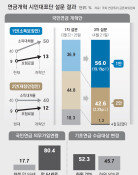U.S. imposes additional sanctions on 9 Chinese firms
U.S. imposes additional sanctions on 9 Chinese firms
Posted March. 27, 2017 07:10,
Updated March. 27, 2017 07:27
The U.S. administration has imposed additional sanctions on Chinese and North Korean individuals and entities over North Korea’s nuclear threat. The US House of Representatives introduced a bill on Tuesday cited as the Korean Interdiction and Modernization of Sanctions Act that bans the export of crude oil to North Korea by China. The Trump administration began to impose further sanctions targeting both China and North Korea.
The U.S. Department of State announced on Friday (local time) that the U.S. imposed sanctions on 30 foreign entities and individuals pursuant to the Iran, North Korea, and Syria Nonproliferation Act (INKSNA). Among the 11 entities sanctioned under the INKSNA, Chinese companies took up the most with nine entities including Sinotech Carbon and Graphite Corporation, and an Iranian company and a North Korean company were listed as well. Saeng Pil Trading Corporation of North Korea was on the list of the U.S. administration on charges of trading items that could make a material contribution to the development of weapons of the mass destruction since last year.
The State Department said in a statement that these entities and individuals were sanctioned as a result of a determination that there was credible information indicating they had transferred to, or acquired from Iran, North Korea, or Syria goods, services, or technology listed on multilateral export control lists. The U.S. government first included Iran in its list of sanctions in 2000, followed by Syria in 2005 and North Korea in 2006 according to the INKSNA.
The Global Times, the official newspaper of the Chinese Communist Party, reported such sanctions of the U.S., but no further reactions were made and observers expect that China began to level off for the upcoming U.S.-China Summit in next month. When the Trump administration imposed sanctions on Ningbo New Century Import and Export Company and other Chinese firms last month, Chinese Foreign Affairs Ministry spokesman Lu Kang said on behalf of Beijing that such sanctions, particularly when they harmed the interests of a third party, were “not helpful” in promoting mutual trust.
ddr@donga.com · bonhong@donga.com
The U.S. Department of State announced on Friday (local time) that the U.S. imposed sanctions on 30 foreign entities and individuals pursuant to the Iran, North Korea, and Syria Nonproliferation Act (INKSNA). Among the 11 entities sanctioned under the INKSNA, Chinese companies took up the most with nine entities including Sinotech Carbon and Graphite Corporation, and an Iranian company and a North Korean company were listed as well. Saeng Pil Trading Corporation of North Korea was on the list of the U.S. administration on charges of trading items that could make a material contribution to the development of weapons of the mass destruction since last year.
The State Department said in a statement that these entities and individuals were sanctioned as a result of a determination that there was credible information indicating they had transferred to, or acquired from Iran, North Korea, or Syria goods, services, or technology listed on multilateral export control lists. The U.S. government first included Iran in its list of sanctions in 2000, followed by Syria in 2005 and North Korea in 2006 according to the INKSNA.
The Global Times, the official newspaper of the Chinese Communist Party, reported such sanctions of the U.S., but no further reactions were made and observers expect that China began to level off for the upcoming U.S.-China Summit in next month. When the Trump administration imposed sanctions on Ningbo New Century Import and Export Company and other Chinese firms last month, Chinese Foreign Affairs Ministry spokesman Lu Kang said on behalf of Beijing that such sanctions, particularly when they harmed the interests of a third party, were “not helpful” in promoting mutual trust.
ddr@donga.com · bonhong@donga.com







